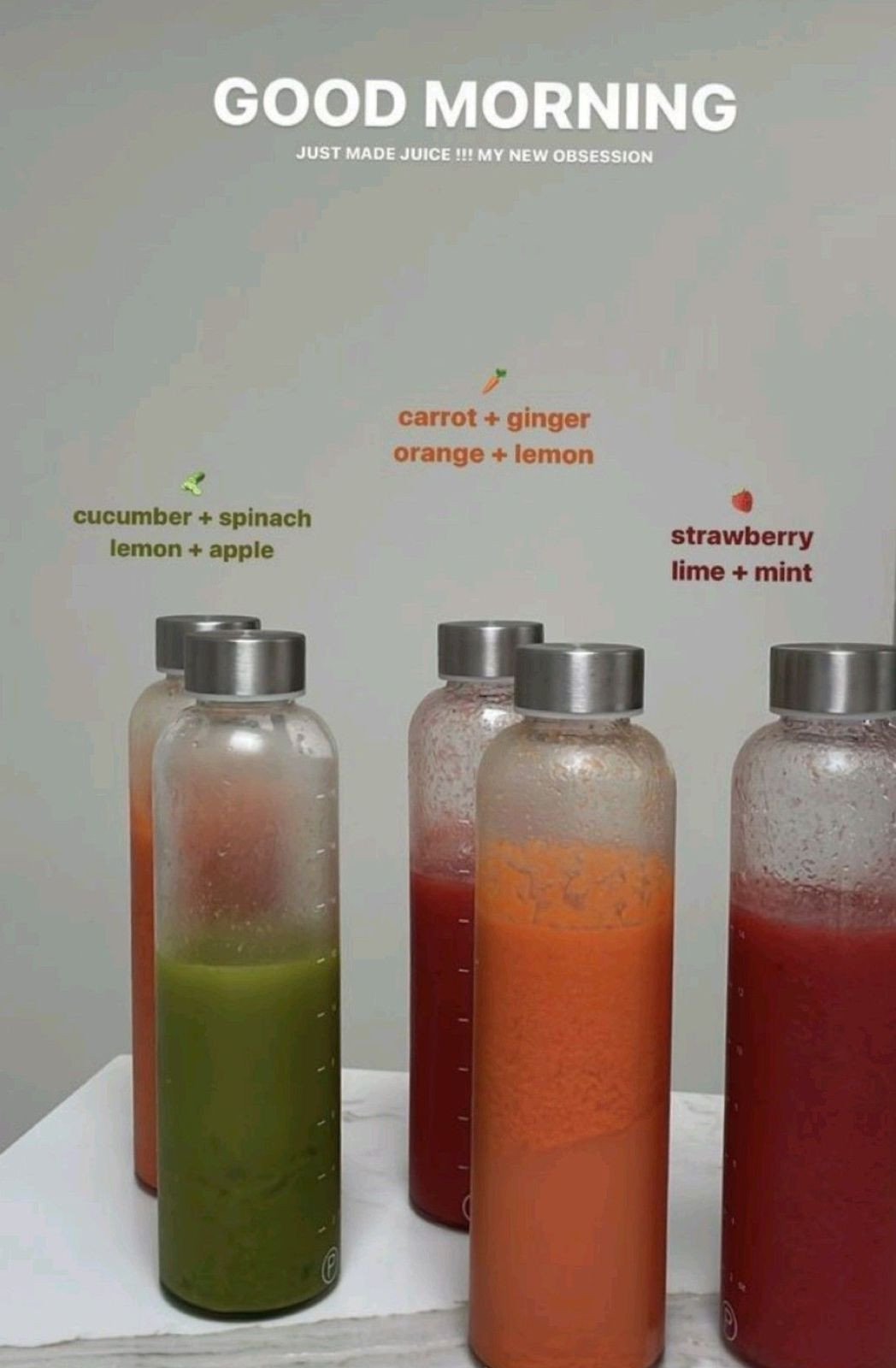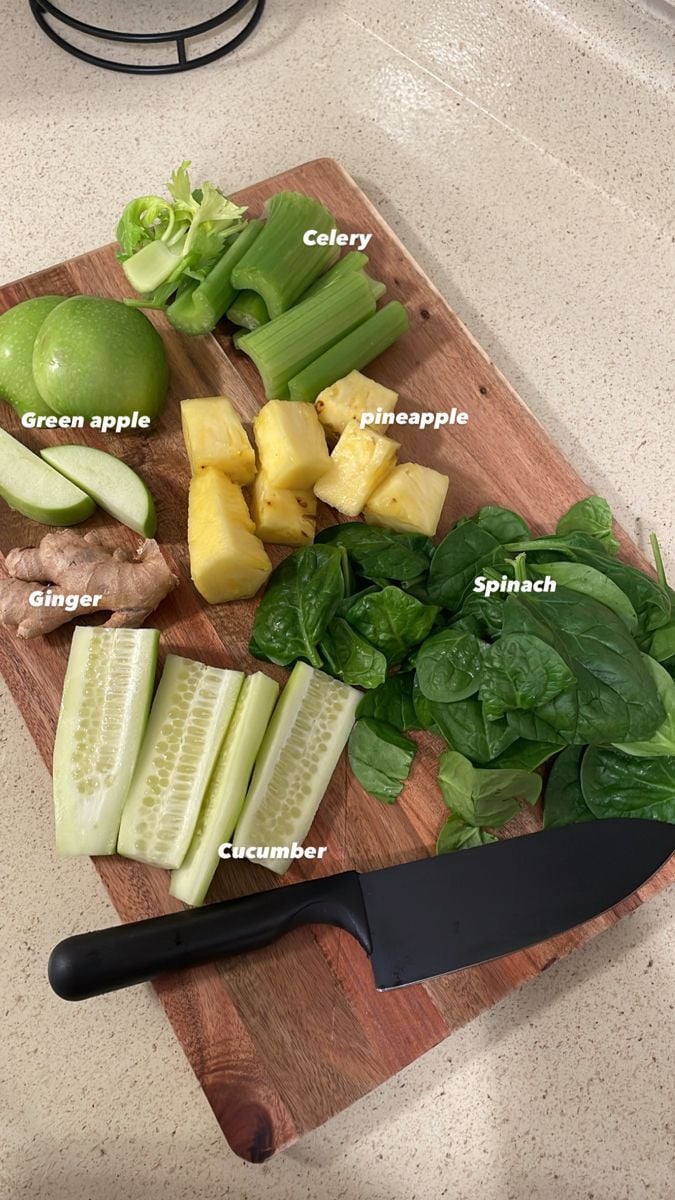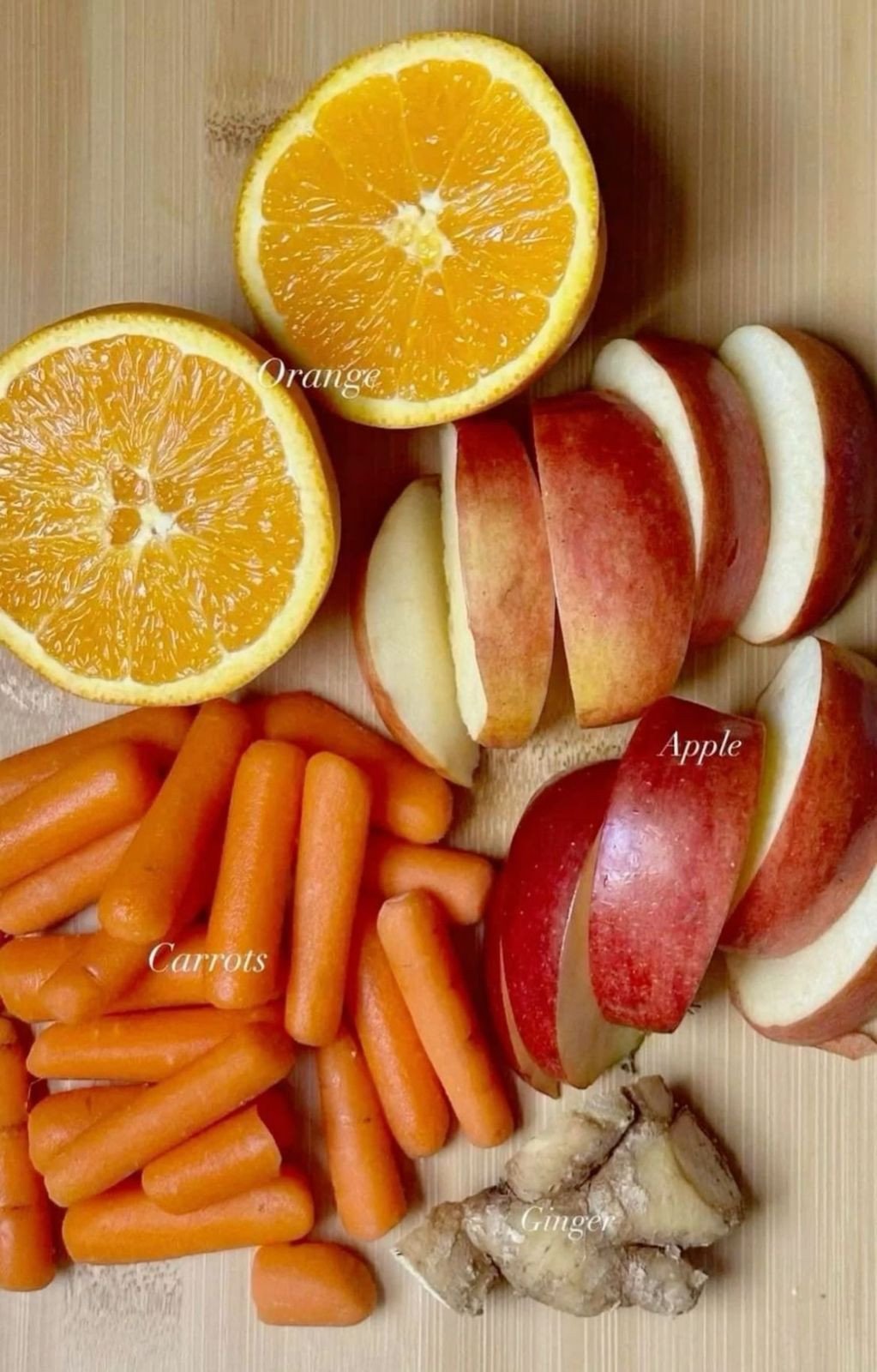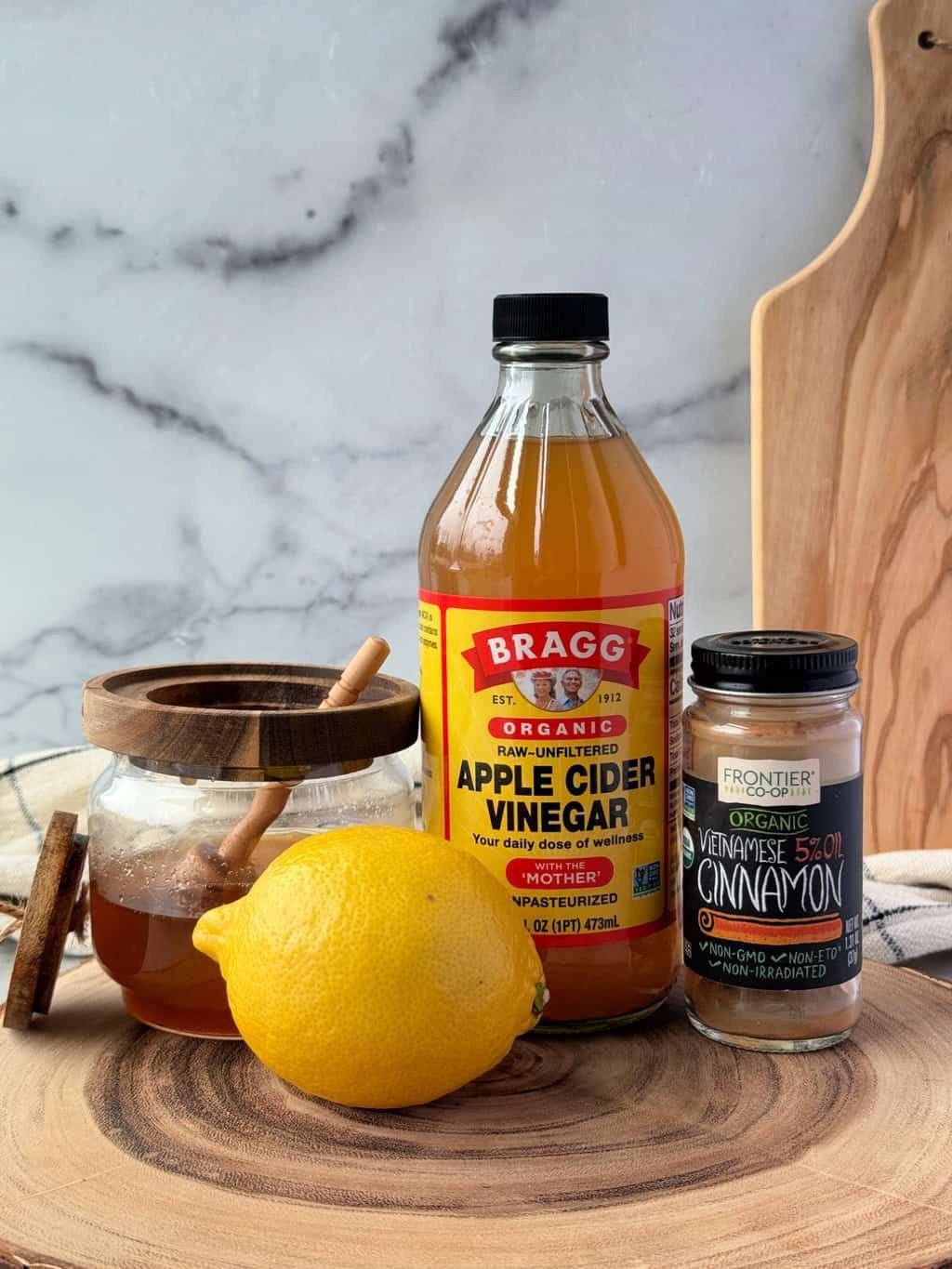Juice cleanses have become a popular way to detoxify and rejuvenate the body.Many people turn to store-bought juice cleanses, but there’s something particularly satisfying about preparing your own detox juices at home.
Homemade juice cleanses can be customized to fit individual tastes and nutritional needs, offering a refreshing and healthy way to reset your system. The concept is simple: drink nutrient-dense liquids made from fruits, vegetables, and other natural ingredients to give your digestive system a break, flush out toxins, and promote overall wellness.

Let’s explore some of the most popular homemade juice cleanses, their recipes, and the advantages and disadvantages of incorporating them into your routine.
1. Green Juice Cleanse Recipe:

1 cucumber
2 celery stalks
1 apple
1 lemon
A handful of spinach or kale
1-inch piece of ginger (optional, for extra detox properties)
Preparation:
Juice all the ingredients together. If you don’t have a juicer, a high-speed blender will also work; just strain the mixture afterward for a smoother drink.
Advantages:
Green juice cleanses are among the most popular choices because they’re packed with vitamins, minerals, and antioxidants. The combination of leafy greens like spinach or kale and other hydrating ingredients like cucumber and celery makes this juice cleanse highly beneficial for digestion, hydration, and skin health.
These juices are rich in fiber and chlorophyll, which support liver function and help flush out toxins from the body. The addition of apple and lemon gives a natural sweetness and tangy flavor, which makes it easy to drink.
Drawbacks:
While green juices are nutritious, they can also be low in protein and fat, two macronutrients that are essential for sustained energy levels. Relying solely on a green juice cleanse for an extended period can lead to a nutrient imbalance.
Additionally, the high amounts of certain vegetables, like kale, can sometimes cause digestive discomfort for people with sensitive stomachs or thyroid issues due to their goitrogen content.
2. Citrus Juice Cleanse Recipe:

3 oranges
2 grapefruits
1 lemon
1 lime
A teaspoon of honey (optional, for added sweetness)
Preparation:
Juice all the citrus fruits together and stir in the honey if you prefer a sweeter taste. This juice works best when consumed fresh.
Advantages:
Citrus fruits are packed with vitamin C, an essential nutrient that supports the immune system, promotes healthy skin, and acts as a powerful antioxidant. This cleanse is excellent for boosting energy levels and helping with hydration, thanks to the high water content in citrus fruits.
It’s also great for digestion, as it stimulates the production of digestive enzymes. The tangy taste of citrus juices can be very refreshing, especially in the morning or as an afternoon pick-me-up.
Drawbacks:
While citrus fruits offer a ton of health benefits, they can be quite acidic, which may irritate the stomach lining for some individuals, especially if consumed on an empty stomach. People with acid reflux or sensitive stomachs should avoid large quantities of citrus during a cleanse.
Additionally, citrus juice can be high in sugar, especially if consumed in large amounts, which may not be suitable for those monitoring their blood sugar levels.
3. Beetroot Juice Cleanse Recipe:

1 large beetroot
2 carrots
1 apple
1 lemon
A small piece of ginger (optional)
Preparation:
Juice all the ingredients together. If you don’t have a juicer, you can blend them and strain the mixture for a smoother juice.
Advantages:
Beetroot juice is renowned for its ability to cleanse the liver and improve circulation. It’s rich in antioxidants, nitrates, and betalains, which help detoxify the body and promote overall well-being. Beets also help lower blood pressure, improve stamina, and support liver detoxification.
Adding carrots and apples gives the juice a naturally sweet flavor while providing additional nutrients like vitamin A and fiber.
Drawbacks:
Beetroot juice has a very earthy flavor that may not be palatable to everyone. Additionally, beets are high in oxalates, which, if consumed excessively, can contribute to kidney stones in susceptible individuals.
If you have kidney problems or are prone to oxalate buildup, it’s best to limit beetroot juice consumption. The high sugar content in apples and carrots may also be a concern for individuals trying to manage their sugar intake.
4. Carrot and Ginger Juice Cleanse Recipe:

4 large carrots
1-inch piece of ginger
1 apple (optional for sweetness)
1 orange (optional for a tangy kick)
Preparation:
Juice the carrots and ginger, and then add apple and orange as desired.
Advantages:
This juice is great for boosting your immune system due to the high vitamin A content in carrots and the anti-inflammatory properties of ginger. Ginger has been shown to aid digestion, reduce nausea, and support the immune system.
This juice is also an excellent choice for improving skin health, as the combination of vitamin A and antioxidants helps combat acne and promotes a healthy glow. Carrot juice is naturally sweet, so it doesn’t require any added sugar.
Drawbacks:
Carrot juice can be high in sugar, especially when consumed in large quantities. It’s important to balance carrot-based juices with other vegetable juices to avoid an overload of sugar.
Additionally, while ginger is a powerful anti-inflammatory, it can cause irritation in the digestive tract for some people, particularly if consumed in large amounts or on an empty stomach.
5. Apple Cider Vinegar Juice Cleanse Recipe:

1 tablespoon of apple cider vinegar
1 cup of water
1 teaspoon of honey
A pinch of cinnamon (optional for an extra kick)
Preparation:
Mix all the ingredients in a glass. Stir well to dissolve the apple cider vinegar and honey.
Advantages:
Apple cider vinegar is known for its ability to aid in digestion, balance blood sugar levels, and support weight loss. It has strong antimicrobial properties, which may help improve gut health by promoting the growth of good bacteria.
This cleanse can also boost energy levels and detoxify the body by helping to flush out toxins.
Drawbacks:
Apple cider vinegar is highly acidic, and if consumed in excess or undiluted, it can cause irritation to the throat or stomach lining. It’s important to always dilute the vinegar and avoid overconsumption to prevent digestive issues.
Additionally, people with certain medical conditions, such as ulcers or acid reflux, should consult their healthcare provider before incorporating apple cider vinegar into their cleanse.
Homemade juice cleanses can be an excellent way to hydrate, boost nutrient intake, and support detoxification, but they should be approached with balance. While juices can be packed with essential vitamins and minerals, they can also lack certain macronutrients like protein and healthy fats, which are crucial for sustained energy.
For best results, it’s important to complement your juice cleanse with a balanced diet and exercise. Juice cleanses can be particularly effective as a short-term reset, but it’s essential to remember that they are not a magic bullet for long-term health.
Before starting any type of juice cleanse, especially an extended one, it’s always a good idea to consult with a healthcare professional to ensure it’s right for your body and health goals.









COMMENTS
Comments are moderated and generally will be posted if they are on-topic and not abusive.
For more information, please see our Comments FAQ